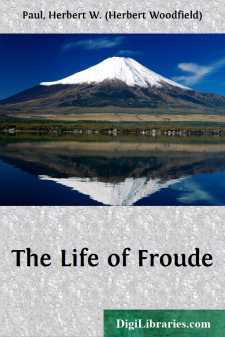Categories
- Antiques & Collectibles 13
- Architecture 36
- Art 48
- Bibles 22
- Biography & Autobiography 813
- Body, Mind & Spirit 142
- Business & Economics 28
- Children's Books 17
- Children's Fiction 14
- Computers 4
- Cooking 94
- Crafts & Hobbies 4
- Drama 346
- Education 46
- Family & Relationships 57
- Fiction 11829
- Games 19
- Gardening 17
- Health & Fitness 34
- History 1377
- House & Home 1
- Humor 147
- Juvenile Fiction 1873
- Juvenile Nonfiction 202
- Language Arts & Disciplines 88
- Law 16
- Literary Collections 686
- Literary Criticism 179
- Mathematics 13
- Medical 41
- Music 40
- Nature 179
- Non-Classifiable 1768
- Performing Arts 7
- Periodicals 1453
- Philosophy 64
- Photography 2
- Poetry 896
- Political Science 203
- Psychology 42
- Reference 154
- Religion 513
- Science 126
- Self-Help 84
- Social Science 81
- Sports & Recreation 34
- Study Aids 3
- Technology & Engineering 59
- Transportation 23
- Travel 463
- True Crime 29
Sort by:
by:
Valentine Chirol
CHAPTER I THE CLASH OF TWO CIVILISATIONS On February 9, 1921, three hundred and twenty-one years after Queen Elizabeth granted to her trusty "Merchant-venturers" of London the charter out of which the East India Company and the British Empire of India were to grow up, His Royal Highness the Duke of Connaught inaugurated at Delhi, in the King-Emperor's name, the new representative...
more...
What it is that has kept urging me to write down these recollections of Edward Gamaliel Janeway, the physician, would indeed be rather hard to define, but the desire to record a little something of what I had personally come to know of this unusual man made itself felt very shortly after his death, now over five years ago. Since that time this feeling—steadily growing—seems irresistibly to have...
more...
by:
Laura Lee Hope
CHAPTER I A MIDNIGHT ALARM "Bunny! Bunny Brown! Sue, dear! Aren't you going to get up?" Mrs. Brown stood in the hall, calling to her two sleeping children. The sun was shining brightly out of doors, but the little folks had not yet gotten out of bed. "My! But you are sleeping late this morning!" went on Mrs. Brown. "Come, Bunny! Sue! It's time for breakfast!" There was...
more...
by:
Amy E. Zwemer
I On this big round earth there are all sorts of countries and peoples. Men walk on it on every side just like flies crawling over a watermelon and they do not fall off either. On the next page you can see how they travel all around the world; some in steamships, some in carriages or on horses, some in jinrickshaws and some in the railway coaches. In Topsy-turvy Land they have no railroads and not even...
more...
CHAPTER I H.M.S. "QUEEN MARY" A great, long, gray shape moved swiftly through the waters of the Thames. Smoke, pouring from three different points in the middle of this great shape, ascended, straight in the air some distance, then, caught by the wind, drifted westward. It was growing dark. Several hours before, this ocean greyhoundвÐâone of Great Britain's monster...
more...
CHAPTER I CHILDHOOD IN reading biographies I always skip the genealogical details. To be born obscure and to die famous has been described as the acme of human felicity. However that may be, whether fame has anything to do with happiness or no, it is a man himself, and not his ancestors, whose life deserves, if it does deserve, to be written. Such was Froude's own opinion, and it is the opinion of...
more...
"Of course—I understand, and entirely agree with you. But if the man retract all threats, confess his imposture in respect to this pretended offspring, and consent to retire for life to a distant colony, upon an annuity that may suffice for his wants, but leave no surplus beyond, to render more glaring his vices, or more effective his powers of evil; if this could be arranged between Mr. Poole...
more...
by:
Vernon Lee
THE USE OF BEAUTY. I. One afternoon, in Rome, on the way back from the Aventine, the road-mender climbed onto the tram as it trotted slowly along, and fastened to its front, alongside of the place of the driver, a bough of budding bay. Might one not search long for a better symbol of what we may all do by our life? Bleakness, wind, squalid streets, a car full of heterogeneous people, some very dull,...
more...
CHAPTER I. AT BELLEVUE "You have the keenest eyes in the troop. Can you see anything ahead?" asked Colonel Winchester. "Nothing living, sir," replied Dick Mason, as he swept his powerful glasses in a half-curve. "There are hills on the right and in the center, covered with thick, green forest, and on the left, where the land lies low, the forest is thick and green too, although I...
more...
by:
Charles Reade
CHAPTER I. THE morning-room of a large house in Portman Square, London. A gentleman in the prime of life stood with his elbow on the broad mantel-piece, and made himself agreeable to a young lady, seated a little way off, playing at work. To the ear he was only conversing, but his eyes dwelt on her with loving admiration all the time. Her posture was favorable to this furtive inspection, for she leaned...
more...











